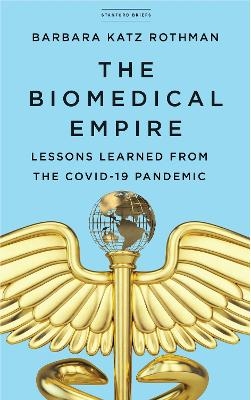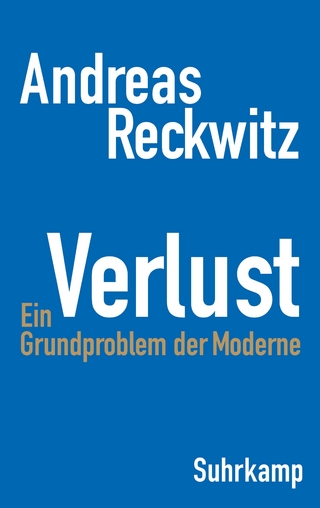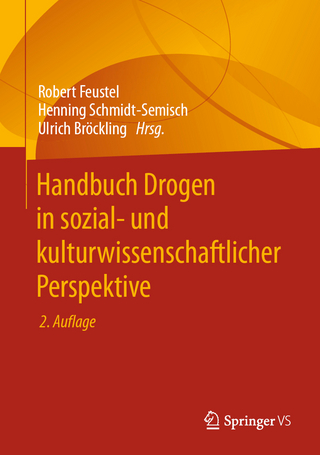
The Biomedical Empire
Stanford Briefs (Verlag)
978-1-5036-2881-6 (ISBN)
Barbara Katz Rothman is Professor of Sociology, at the City University of New York. She has served as President of Sociologists for Women in Society; the Society for the Study of Social Problems, and the Eastern Sociological Society. Her awards include the Jesse Bernard Award of the American Sociological Association, and an award for "Midwifing the Movement" from the Midwives Alliance of North America, and a distinguished Chair in Health Sciences from the Fulbright Association. She is the author of numerous books, most recently A Bun in the Oven: How the Food and Birth Movements Resist Industrialization (2016).
Contents and Abstracts1A Moment of Crisis chapter abstractThe covid pandemic has laid bare many of the structural problems and inequalities of biomedicine as a global industry. Inequalities across nation-states as well as within them have been made apparent, as have some of the dehumanizing and isolating practices of medical treatment. We must both acknowledge the good that medicine does and recognize its failures.
2A Sociologist Walks into a Pandemic chapter abstractThis chapter lays out the basic elements of sociological thinking, the understanding of structural and cultural factors. It explains the concept of 'social construction' and shows how that is applied to medicine.
3Bringing Medical Sociology into the 21st Century chapter abstractSociology must go beyond thinking of individual 'societies' and understand the globalization of power. This applies to biopower, the ways that the imperial power of Biomedicine has expanded its reach. Biomedicine functions globally in much the way we think of other imperial powers, from the Roman Empire to the British and onward, colonizing arenas of knowledge and practice, and turning them into sources of income for the colonizer.
4The Three Elements of an Empire chapter abstractTo understand Biomedicine as an Imperial power means seeing it as not only one of the largest industries on earth, but also as a governmental force and as a religious force. This chapter details the wide economic reach of biomedicine as one of the largest industries on earth, which also has a rule of law, bestowing citizenship, legitimating individuals as having the right to have rights; certifying both birth and death certificates; and legitimating mental states of being. Biomedicine also functions as a religion, a source of belief and comfort.
5What Have We Lost? Where Did the Care Go? chapter abstractWe must distinguish 'health care' from 'medical services.' Public health is increasingly presented as access to medical services, the 'ask your doctor' approach. Public health in its origins was about creating a health-enabling environment, providing clean air, water, safe housing and this chapter argues we must return to that. Within biomedical control, individuals are best understood as 'patients,' consumers of medical services. The language of 'patient' is itself explored.
6The Land of the Sick chapter abstractThis chapter builds on Sontag's words, identifying illness as 'land of the sick.' Diagnosis serves the administrative purpose of admitting, or denying admission, to that land, via the 'sick role,' the position of patient. Where in traditional societies religion stood at the gates of life, welcoming and legitimating newly created people and ushering out the dying, in the contemporary world Biomedicine has taken over that function. This is apparent in the world of procreation, in which biomedicine controls the definition of embryonic and fetal personhood, and in death in which a medical declaration and certificate is required. Birth and death have become procedural moments under biomedical control.
7Death and Dying: Seen Through the Lens of Covid-19 chapter abstractThis chapter discusses sudden death and the history of attempts at resuscitation; slow death, the increasing movement of death into hospital-management; and the slowest death, the growth of nursing homes and long-term-care facilities. The role of nursing home in covid deaths has been dramatic, and the inherent risks of these facilities laid clear.
8The Other Gate: Birth in the Time of Covid chapter abstractBirth was one of the early examples of colonization in medicine, as doctors pushed midwives out of practice and turned birth into a medical procedure, with (contrary to popular belief) increased risks and loss of life. As the pandemic made the dangers of hospitalization more clear, the contemporary movement for out-of-hospital birth received more attention. The risks of hospitalization are not randomly distributed, social class and –in the United States in particular – race are risk factors for medical mistreatment.
9The Empire Strikes Back chapter abstractAmong the more dramatic images to come out of the covid epidemic have been the isolation of the sick, elderly and the dying. The absence of caring attention has become apparent as people are blocked from bedside presence. Some attempts were made to move outside of the 'hot bed' of infection that hospitals are, the place where the infectious and sick are congregated. And attempts were made to control the spread of the disease using variations on 'lockdowns,' closing borders and limiting interpersonal connection in what was called 'social distancing,' all with limited success.
10Lessons Learned chapter abstractPoints of resistance to the control of biomedicine as an imperial power can be seen in different communities around the globe and can give indications of how such resistance might be furthered. In this as in the rest of the book, the good that medicine can do is recognized. The development of a vaccine is a powerful force for good, but resistance or fear can be best understood in the context of the larger imperial power. We must put a focus on health, and a valuing of care, into what is called 'healthcare' but should more accurately be called 'medical services'.
| Erscheinungsdatum | 25.06.2021 |
|---|---|
| Sprache | englisch |
| Maße | 127 x 203 mm |
| Themenwelt | Sozialwissenschaften ► Soziologie |
| ISBN-10 | 1-5036-2881-7 / 1503628817 |
| ISBN-13 | 978-1-5036-2881-6 / 9781503628816 |
| Zustand | Neuware |
| Haben Sie eine Frage zum Produkt? |
aus dem Bereich


